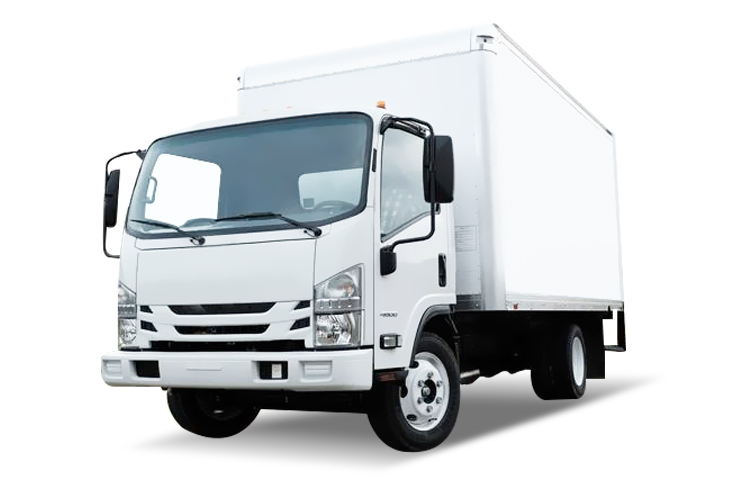Introduction
The 26ft reefer box truck represents one of the most versatile and essential vehicles in modern logistics and transportation. This specialized commercial vehicle combines substantial cargo capacity with temperature-controlled functionality, making it indispensable across numerous industries. From food distribution to pharmaceutical transport, these refrigerated trucks form the backbone of temperature-sensitive supply chains across the country.
What Defines a 26ft Reefer Box Truck?
A 26ft reefer box truck typically features a cargo area measuring approximately 26 feet in length, hence the name. This substantial size places it in the medium-duty truck category, offering an optimal balance between capacity and maneuverability. The “reefer” designation refers to the refrigeration system that maintains precise temperature control within the cargo area, distinguishing it from standard dry box trucks.
Advanced Refrigeration Technology
The design of these vehicles incorporates specialized insulation throughout the cargo area, creating an environment that can be maintained at temperatures ranging from deep freezing to moderate cooling. The refrigeration unit, typically mounted at the front of the box above the cab, operates independently of the truck’s main engine. This system runs on diesel or electric power, ensuring continuous temperature regulation even when the vehicle is parked or the engine is off.
Cargo Capacity and Dimensions
Most 26ft reefer box trucks offer impressive payload capacities, generally accommodating between 10,000 to 14,000 pounds of cargo. This substantial capacity translates to approximately 1,500 cubic feet of storage space, allowing businesses to transport significant quantities of temperature-sensitive goods in a single trip. The interior dimensions typically measure around 26 feet in length, 8 feet in width, and 8.5 feet in height, providing ample room for various load configurations.
Critical Role in Food Distribution
The food service industry heavily relies on 26ft reefer box trucks for transporting perishable items from distribution centers to restaurants, supermarkets, and institutional kitchens. These vehicles maintain the cold chain integrity essential for preserving food quality and safety. Fresh produce, dairy products, meats, and frozen foods all require consistent temperature control during transit, making these specialized trucks indispensable for food distributors.
Pharmaceutical Transport Applications
Pharmaceutical companies also depend on reefer box trucks for transporting medications, vaccines, and biological samples that require strict temperature regulation. The pharmaceutical cold chain presents unique challenges, as many medications must be maintained within extremely narrow temperature ranges to preserve their efficacy. The advanced temperature control systems in modern 26ft reefer trucks can be programmed with precise parameters and monitored continuously throughout transport.
Operational Considerations
Operating a 26ft reefer box truck comes with specific considerations beyond those of standard box trucks. The refrigeration unit requires regular maintenance to ensure reliable operation, including inspection of refrigerant levels, compressor functionality, and temperature monitoring systems. Fuel consumption tends to be higher than comparable non-refrigerated trucks due to the energy demands of the cooling system.
Specialized Driver Training Requirements
Drivers of these vehicles also need specialized training to properly operate the refrigeration equipment and understand temperature monitoring protocols. Many modern reefer units feature digital controls and remote monitoring capabilities, allowing fleet managers to track temperature conditions in real-time and receive alerts about any deviations from set parameters.
Regulatory Compliance
From a regulatory perspective, companies operating 26ft reefer box trucks must comply with transportation regulations as well as food safety or pharmaceutical handling requirements depending on their cargo. This often includes maintaining temperature logs and following specific sanitization protocols between loads.
Investment and Acquisition Costs
The cost of acquiring a 26ft reefer box truck exceeds that of standard box trucks due to the specialized refrigeration equipment. New vehicles typically range from $80,000 to $130,000, while used options may be available starting around $40,000 depending on age and condition. Many businesses opt for leasing arrangements to manage capital expenses while ensuring access to well-maintained equipment.
Technological Advancements
Technological advancements continue to enhance the capabilities of modern reefer trucks. Multi-temperature zones allow different sections of the cargo area to be maintained at distinct temperatures, enabling the transport of various product types requiring different environmental conditions. Advanced insulation materials improve temperature stability while reducing the energy required for cooling, lowering operational costs and environmental impact.
Business Considerations and ROI
For businesses considering adding a 26ft reefer box truck to their fleet, careful analysis of transportation needs and cargo requirements is essential. The significant investment must be balanced against the expanded service capabilities and potential new revenue streams that temperature-controlled transport enables.
Conclusion
As supply chains become increasingly complex and consumer expectations for fresh products grow, the role of the 26ft reefer box truck remains crucial in connecting producers, distributors, and end consumers. These specialized vehicles ensure that temperature-sensitive goods reach their destination in optimal condition, maintaining quality and safety from loading dock to final delivery.





